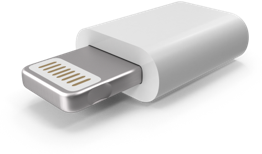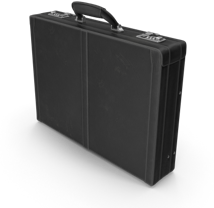What is DeFi (Decentralised Finance)?

Definition
Decentralised finance (DeFi) recreates financial services like insurance, loans & savings accounts on Blockchain networks outside the control of banks, governments & companies.

Understanding DeFi
DeFi refers to a wide range of financial services that are built on top of Blockchain networks that do not require a third party. With DeFi you can do the things that banks allow you to do, such as borrow, lend, earn interest, buy insurance and trade assets in a faster, cheaper and more secure way that doesn’t require any paperwork or bank fees.
Unlike traditional centralised finance (CeFi), DeFi makes financial services available to anyone with an internet connection, empowering the billions of unbanked people around the world in an unprecedented way.
What is DeFi?
In technical terms, DeFi is an open source, permissionless and transparent financial service ecosystem that uses cryptocurrencies instead of regular fiat currency.
DeFi allows users to enjoy a wide range of financial services while maintaining full control over their data and assets. People interact with the ecosystem through direct peer-to-peer (P2P) exchanges and DApps (decentralised applications) that are not controlled by any central power.
Some of the real world use-cases and examples of DeFi include (but are not limited to):
- Open borrowing/lending platforms
- Interest earning opportunities
- Decentralised insurance and trading exchanges
- Improved data, asset & supply chain management
- Faster, more secure & completely automated payments & contracts
- More efficient voting & identity services
- Wealth protection & inflation resistant savings
- Enhanced social media & content distribution

Key Takeaways
- DeFi is the notion that crypto entrepreneurs can recreate traditional financial services outside the control of banks, governments & companies
- DeFi breaks a range of financial services into separate but interconnected pieces that work together in an open, permissionless ecosystem online (like the Ethereum network).
- DeFi is a financial system that uses crypto instead of fiat money, offering us a better alternative to the outdated & inefficient processes of today.
- DeFi is the first system that gives people true financial autonomy & ownership over our assets.
- Most DeFi projects, cryptocurrencies and decentralised applications (DApps) are built on the Ethereum blockchain, however, DeFi is in no way limited to just Ethereum.
- Many of financial services we enjoy are not accessible to billions of people around the world. DeFi makes these services accessible by anyone, from anywhere.
- The easiest way to invest in DeFi is simply to buy and hold Ethereum (though there are many ways to get involved).

Did this answer your question?
Digital Surge is the easiest way for Australians to buy, sell & store over 250+ cryptocurrencies. With extremely low fees, a uniquely user-friendly interface and a customer-support team you can rely on, getting involved in crypto has never been easier. Sign up today and enjoy safe, stress-free trading.
Crypto-curious? The time you spend here will be the best investment you ever make.
Tell me more...
What are the core benefits of DeFi?
One of the best ways to understand DeFi and why it’s all-the-rage right now is by taking a look at some of the advantages it offers everyday people. These include:
- Democratised finance – People without bank accounts (or those who want real financial autonomy) can access a wide range of financial services. Many in developing countries will go straight to DeFi without ever dealing with a major bank.
- Security and transparency – By splitting the financial services industry up, the system loses many of its weak points and becomes far more transparent, meaning more power to the people and less shady business behind the scenes.
- No need for third parties – Say goodbye to third parties who charge you for every financial service you access. This is a huge step towards more independence and freedom for the everyday person.
- Innovation through competition – Because anyone can build a DApp to integrate with other DApps, and anyone can access this system, the DeFi market will be extremely competitive, innovative and consumer-friendly. The interdependence between DApps means they can keep adding value to each other and evolving rapidly.
- New & novel applications – There are many novel and mind-boggling things you can do with Blockchain, crypto and DeFi. It’s still early days but the potential and scope of this movement is hard to fathom.
- Cheaper – Because DApps can offer services autonomously and without a third party, they can also offer them at much lower cost than their centralised equivalents (banks, insurance companies, etc.)
- The ability to generate interest on assets and invest in Blockchain technology – There are countless ways DeFi allows the average person to earn passive income or invest in Blockchain technology beyond just buying cryptocurrencies.
The list of DeFi’s advantages is rapidly growing and is a major reason why the next decade will see much of the global financial system move from centralised finance to DeFi. Check out our comprehensive guide on why the world needs cryptocurrency.
What is the difference between decentralised finance (DeFi) and centralised finance (CeFi)?
In traditional centralised finance (CeFi), almost everything related to money is done through non-transparent central entities and intermediaries like banks and governments.
Currently, central banks create money while commercial banks hold your money (and charge you a fee for the privilege of doing so). Then, via intermediaries and third parties, like insurance companies and the banks themselves (who also take their cut), we are provided with the financial services we rely on such as insurance, loans, banking services, savings accounts, etc.
Bitcoin begun the DeFi shift by taking the process of money creation away from central banks and putting it online where anyone could create it. Bitcoin also allowed you to have full ownership of your money, which meant being able to securely store and send it anywhere you wanted without paying exorbitant fees or needing a bank to be involved.
DeFi is doing something similar but with every financial service you can think of. It is open source, permissionless, transparent and far more efficient than centralised finance (which charges high fees and is not accessible to a huge portion of the world).
It won’t happen overnight but DeFi is poised to evolve and grow into something that will disrupt, and one-day replace CeFi and many traditional financial institutions.
Note: “Open source” refers to software that is collaboratively produced, shared freely, and developed for the good of a community rather than for a business, single company or person. The advantages of open source technology are countless and the open source movement is the reason that technology has developed at such a breakneck pace for the past few decades.
What is a smart contract?
In order to create a decentralised and secure system where financial services can be offered outside of traditional institutions, DeFi relies heavily on smart contracts, which are the main building blocks of DeFi.
Smart contracts allow two parties to undertake some form of exchange or action. This could be anything from money transfers to property transfers to insurance claims to voting to supply chain management.
Smart contracts are essentially self-executing contracts built on the Ethereum network in which the terms of the agreement are written in code. Smart contracts aim to replace all contractual agreements as we know them today with self-executing, fully autonomous, highly secure digital agreements.
They exist across a distributed, decentralised Blockchain network which allows the contract to be legitimate, trackable and irreversible, while the code controls the execution of the contract when the terms are met. Smart contracts are secure, transparent, autonomous, automated, third party free and highly efficient & accurate when compared with regular contracts.
What is a DApp?
DApps (decentralised applications) are essentially a series of linked smart contracts that are built on decentralised technology (rather than being owned and controlled by a single, centralised entity or company).
- A smart contract on its own can only be used for one type of transaction, however, a DApp can combine multiple smart contracts together to do more sophisticated things, often adding a friendly interface on top of a contract in the same way that regular apps do today.
- As network hacks have become more frequent in recent years, the need for individual ownership and better management and security of data and assets has become a growing concern.
- As DApps are built on a Blockchain-enabled distributed public ledger, they offer true ownership of content and assets, added security that doesn’t rely on a bank or third party, and records that cannot be tampered with.
In theory, DApps are much cheaper to run than traditional centralised applications and can interact with one another in a way that will bolster collaboration and innovation.
How can DeFi help the developing world?
Along with our current financial system being fragile, outdated and downright expensive to use, there are 1.7 billion unbanked people in the world. That’s a whole lot of people without access to the banking and financial services that we take for granted.
It’s hard for many of us to imagine what it would be like to not have a bank account, but I don’t think I’d feel very safe with my life savings stashed under my mattress, especially if my country had an extremely precarious economy.
In addition to paving the way for the next generation of financial services, DeFi provides a wealth of possibilities for both developing and developed countries.
For example, there are DeFi platforms that allow you to lend, borrow, margin-trade, and trade without permission from an intermediary or third-party. You can even use your digital assets (Ether on the Ethereum Blockchain for example) as collateral for a loan or micro-loan and you can expect to pay much lower interest and fees than with a regular bank.
Having a lack of access to capital and loans makes it incredibly difficult for the unbanked of the world to pull themselves out of poverty. And that’s where DeFi comes in.
DeFi can open the doors to capital and economic growth for many people around the world, something that is badly needed and completely unprecedented in human history.
How does crypto & DeFi act as a safe place to store your money?
In the past, if you needed banking or financial services you had to be approved (and charged a premium) by a financial intermediary or third party. Not with DeFi. With access to the internet, you have access to financial services and a safe place to store your money – a huge shift for many in the developing world.
Bitcoin and cryptocurrency, as a store of value, has already played an important role in countries whose currencies have become practically worthless due to hyper-inflation and economic strife (Venezuela, for example).
Crypto provides people from these countries a way to safely store their savings in a form of currency that is not susceptible to the crash of their country’s economy and fiat currency.
As many cryptocurrencies are finite and decentralised, they are not so easily manipulated by the market and financial institutions, and while crypto is undoubtedly volatile in its current form, new cryptocurrencies are being introduced that offer a more stable alternative to store your assets. RSR is an excellent example of this.
“Central banks are just people, and people make mistakes. Decentralized financial applications can make our financial systems more transparent, more resilient and less fragile,” – Salil Deshpande, partner at Bain Capital Ventures
What is the relationship between DeFi and Ethereum?
It is worth noting that the vast majority of DeFi projects are happening on the Ethereum Blockchain, which, at this stage in time, is by far the best DIY platform for building DApps and smart contracts.
Some notable DApps/projects that have been built on Ethereum’s network include:
Golem – An open source, decentralised supercomputer that anyone in the world can access. Users can rent out their computing power to other users, which means the network could essentially create a global market for computing power.
MakerDAO – A DApp that allows users to lend and borrow cryptocurrencies without a middleman or third party. It is also a decentralised credit service that supports Dai, a coin whose value is pegged to the U.S. dollar.
Uniswap – An Ethereum-based exchange where you can buy, sell and swap ERC20 tokens (tokens designed and used solely on the Ethereum platform).
Augur – A tool that aims to improve trading gains, allowing you to speculate on derivatives.
How do you invest in DeFi?
Fortunately (and unfortunately), there is no shortage of ways you can invest in DeFi.
Given the range of options, we recommend doing some solid research before choosing an investment pathway. However, if you’re looking for the easiest way to invest in DeFi, it is to simply buy Ethereum.
While other projects like Polkadot and Cardano are pushing the DeFi space forward (along with a slew of other extremely promising DeFi projects and cryptocurrencies that you can easily invest in), Ethereum is by far the biggest name in the space and is currently where most of the DeFi action is taking place.
Things to consider before investing in DeFi
There are undoubtedly risks and downsides that come with any new movement of this scale. Here are some things to keep in mind before investing:
- As DeFi is a new and rapidly evolving space, there is a threat of security issues, fraud, scams and pump-and-dump schemes as there aren’t many established names and there is a lot of hype in the industry. Investing in DeFi can be extremely lucrative but much like crypto, it carries a degree of risk in its current stage.
- Like crypto, many DeFi projects will inevitably fail and take their investor’s money with them. Some projects like Uniswap and Golem have proved their value but many will not stand the test of time.
- Currently, there is a lack of insurance against hacks or other fraudulent activities in DeFi, meaning you could potentially lose your investment. For good.
- If there is a flaw in the code of a smart contract built on Ethereum’s network (more on this below) it can lead to loss of funds.
- Scalability is an issue and Ethereum’s greatest challenge – transactions can take a long time to be confirmed and can be quite expensive to execute at times of congestion.
While DeFi is by no means a finished product, risks and speedbumps are to be expected with any new revolutionary technology. We advise all investors to DYOR and proceed with caution. As always, never invest what you can’t afford to lose!
Check out our handy article on how to stay safe trading cryptocurrency!
Bitcoin was what kickstarted the DeFi movement by giving everyday people a way to create money outside the control of central banks and governments.
DeFi takes the basic premise of Bitcoin (digital money) and expands on it, creating an entire digital alternative to Wall Street, banks and financial institutions, but without all the associated costs like skyscrapers, offices, banker’s salaries, etc.
Fundamentally, DeFi seeks to create more open, free, and fair financial marketplace that utilises cryptocurrencies and is widely accessible to anyone with an internet connection.
“The goal of DeFi is to reconstruct the banking system for the whole world in this open, permissionless way” – Alex Pack, managing partner at Dragonfly Capital, an $100 million crypto fund.
Did this answer your question?
Digital Surge is the easiest way for Australians to buy, sell & store over 250+ cryptocurrencies. With extremely low fees, a uniquely user-friendly interface and a customer-support team you can rely on, getting involved in crypto has never been easier. Sign up today and enjoy safe, stress-free trading.
Crypto-curious? The time you spend here will be the best investment you ever make.
Enjoy effortless trading today
- ACN 620 473 109
- © 2021 Copyright Digital Surge




